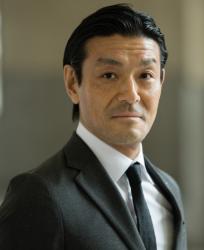

2:00 pm EDT - 3:30 pm EDT
Past Event
2:00 pm - 3:30 pm EDT
1775 Massachusetts Avenue N.W.
Washington, DC
20036
The future of the rules-based trading system has never looked more uncertain. Due to negotiation paralysis at the World Trade Organization, the rulebook on trade and investment has not been updated in nearly 25 years. There is deep concern that the actions of the two largest economies in the world may further strain the multilateral trading system. China’s rise has not seen the emergence of a market-driven economy. Rather, its market distorting policies have created major trade irritants in areas such as overcapacity for steel production and intellectual property theft. The Trump administration is calling for a complete reset of United States trade policy, skeptical of multilateral trade agreements and the World Trade Organization. It has reverted to managed trade practices and the tariff is its tool of choice. The tariff war that the United States and China are currently engaged in risks escalation and may prove difficult to wind down any time soon.
However, other countries are doubling down on multilateral trade liberalization efforts, producing a series of ambitious mega trade agreements. Japan and the European Union have been at the forefront of this effort, recently signing a trade agreement that covers a third of world GDP and will eliminate on almost all tariffs between them. Japan also led the effort to rescue the Trans-Pacific Partnership trade agreement, which is expected to go into effect next year. Against this backdrop, reform of the World Trade Organization has gained greater urgency.
On October 8, the Center for East Asia Policy Studies hosted a panel of experts to examine the challenges facing the rules-based trading system in this geopolitical moment. They discussed how we arrived at this critical juncture with protectionism on the rise, the parallels to previous eras of protectionist backsliding, and the survival of the World Trade Organization and what can be done to reform it. They also addressed potential off-ramps for the U.S.-China trade war, how to prevent major rifts between the United States and its trade and security allies, and the role that Japan and others can play in sustaining the rules-based trading system.
Moderator

Panelist


Zia Qureshi
July 14, 2025

Landry Signé
July 8, 2025

Kemal Kirişci, Friedrich Püttmann
June 17, 2025